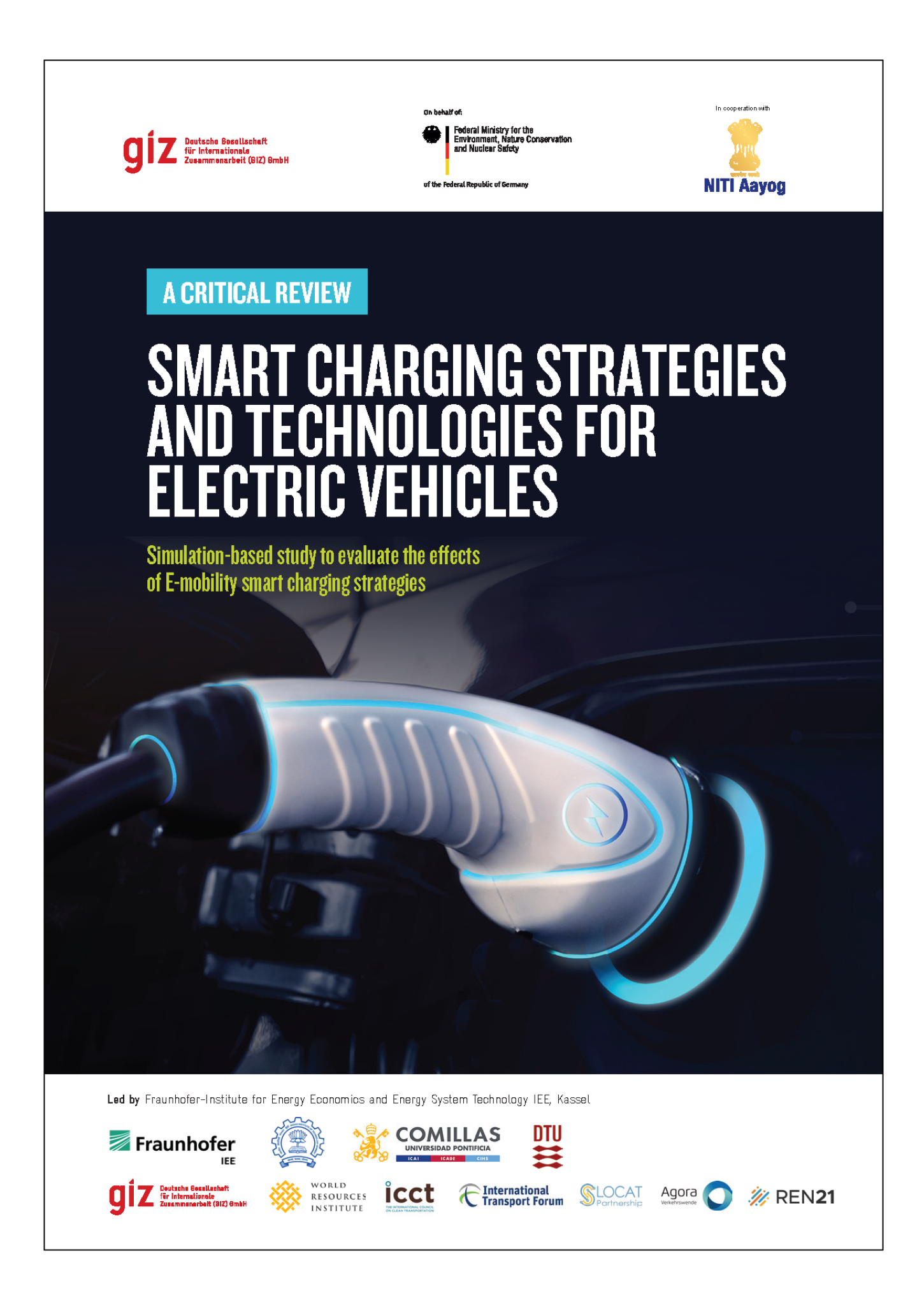Smart Charging Strategies and Technologies for Electric Vehicles
By Zakir Rather (IIT Bombay), Payal Vyankat Dahiwale (IIT Bombay), Dhanuja Lekshmi (IIT Bombay), Mr. Andre Hartung (Fraunhofer IEE)
The report focuses on Electric Vehicles (EV) smart charging strategies and approaches, related policy and regulatory measures, technical aspects, grid integration of EVs, and the way forward for smooth EV adaption in the Indian EV ecosystem.
The following key aspects are focussed in the report:
Concept of smart charging,
Critical review of various smart charging strategies and approaches for electric vehicles,
Smart charging technologies and related products and solutions,
Gaps in Indian regulations and policies from smart charging perspective,
Commercially available smart charging products and equipment, and
Case studies of existing smart charging projects.
Read more at the changing-transport.org.

